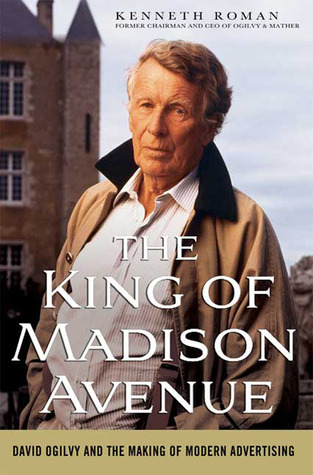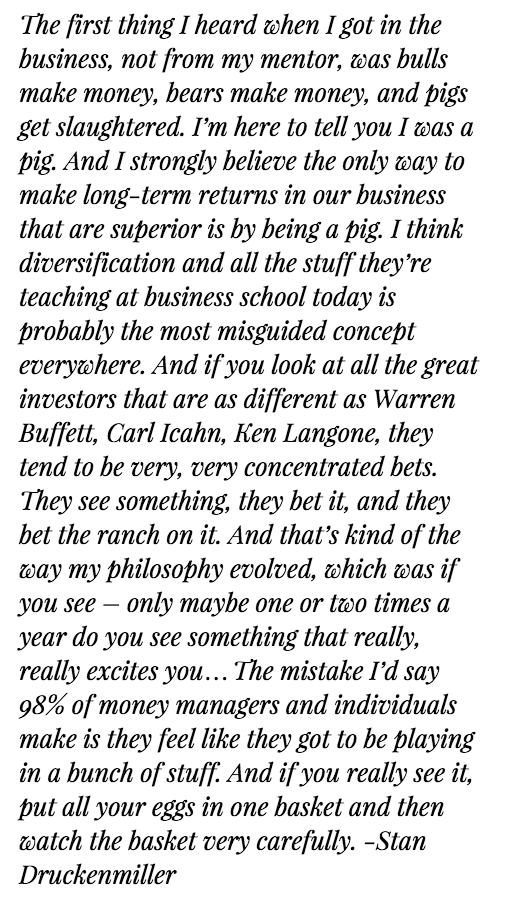
"Fear is a path to the dark side. Fear leads to anger, anger leads to hate, hate leads to suffering."


 12 insights about markets and life from reading Ken Roman’s The King of Madison Avenue and The Unpublished David Ogilvy.
12 insights about markets and life from reading Ken Roman’s The King of Madison Avenue and The Unpublished David Ogilvy.
1. Be unorthodox and imaginative in your hiring. Ready to hire people with unusual backgrounds. Would you hire this man for an advertising executive? “He is 38 and unemployed. He dropped out of college. Has been a cook, a salesman, a diplomat and a farmer. Knows nothing about marketing. And has never written any copy. Is interested in advertising as a career at the age of 38, and is ready to go to work cheap.” It was Ogilvy himself who 3 years later became the most famous copywriter in the world and built the eighth biggest ad agency.
2. Treat women as if they are as knowledgeable as your wife when you advertise to them. They don’t like to be talked down to or treated as robots. Peter Lynch and Jim Cramer are not the only investors who got 10 baggers from their wives.
3. The purpose of advertising is to sell a product. Make sure you go for the sale. Forget about aesthetics. Learn from the mail order ads where everything is tested, and no ad continues unless it pays it way. Forget about the 3rd and 4th moments in your quantitative measures and concentrate on making a profit on your trades.
4. Don’t show off or try to be funny. It doesn’t go well in print. It demeans the readers’ intelligence. If you show off in a trade or competition, it will defuse your energy, and take you away from the bottom line. (more…)


 Play to win, not for a score. Traders who desire only to make money versus simply trying to trade well and their best ability will struggle. This is a money-focused game, but trading well requires you to focus on goals beyond the money to achieve the performance you really desire.
Play to win, not for a score. Traders who desire only to make money versus simply trying to trade well and their best ability will struggle. This is a money-focused game, but trading well requires you to focus on goals beyond the money to achieve the performance you really desire.
Recognize a real gamble. When you are trading well, take the possibility of a major loss out of the equation whenever you can. It is true, when we are the most vulnerable is when everything is going right and it seems like we can do no wrong. Moreover, there are times to make the big aggressive trade, and times when doing so is foolhardy. Recognizing the difference is so very important.
Root hard for yourself. When everything goes wrong, the quickest way to turn it around is to force yourself to be optimistic and enthusiastic. Even after making the so-so trades which only pay out puny returns, you’ve got to pat yourself on the back and slowly gain your confidence back. confidence is everything in trading and you need a steady supply of reassuring confidence to trade at your very best.
Forget the holes up ahead. Focus on today’s trade, not the next one or the one you think you see is falling into place weeks from now. As Hunter recommends, “You really have to stay in the present.” Traders often let big picture themes and views prevent them from seeing setups that occur daily. This tunnel vision can really limit overall returns. Find the next trade, focus on that trade, and after that, move to the next. Don’t let issues you see so far down the road prevent you from making profits today.
The right way to play safe. If you play chicken, you’ll invite bad trades and disaster. As others have said, you’ve always got to trade to win, instead of trading not to lose. There’s a tremendous difference. I know traders who try to hedge every trade they make and ultimately don’t achieve the returns they should. If your approach is sound, hedging should only be a tool to use sparingly, not as an entire strategy substitute or for protecting your ego when you are wrong.
Libor explained. (Easy Street)
How deep does the Libor scandal run? (The Source)
What’s the alternative to Libor? (WSJ)
Did the BOE tell the banks to do it? (Money Game)
The regulatory structure didn’t keep up with Libor. (Money Supply)
 When he hear the term ‘survival of the fittest’ bandied about, people are usually referring to contests of absolute strength and think of the Darwinian struggle for life. Trading is often thought of in a similar light.
When he hear the term ‘survival of the fittest’ bandied about, people are usually referring to contests of absolute strength and think of the Darwinian struggle for life. Trading is often thought of in a similar light.
It’s interesting to note that while Darwin came up the idea of natural selection, the term ‘survival of the fittest’ was coined by economist philosopher Herbert Spencer. What is more, both Darwin and Spencer were not referring to competitions of brute strength, but of best fit. That is, the survivors were those who best fit in to the environment around them. Brute strength is an aspect of this, but it is only half the story. Adaptation to the environment is also required.
Chance and randomness plays a big role in natural selection, as it does with trading success, but we can be sure that regardless of how strong we are with respect to risk management, discipline etc, if we don’t have an edge then we will likely die out. Likewise, an edge and no strength could prove equally fatal. Because the environment of the active investor is dynamic and forever changing, it may be useful to think of the circles below as constantly moving around about other, only rarely intersecting.



